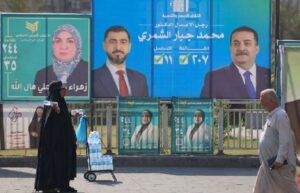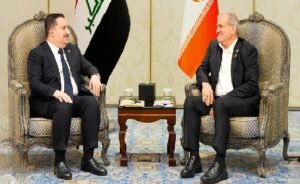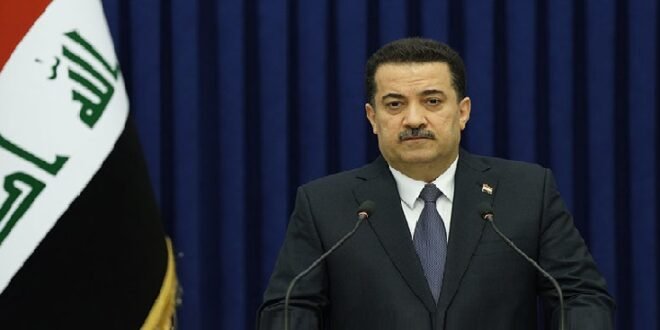12-11-2025
BAGHDAD: Iraqi Prime Minister Mohammed Shia al-Sudani is bidding for a second term, a goal that requires his electoral bloc, the Construction and Development Coalition, to win a commanding number of seats in the November 11 parliamentary elections and back his selection for the role.
 Al-Sudani’s campaign is built on his government’s successes in improving services, maintaining balanced relations between Tehran and Washington, and steering Iraq clear of regional conflict since October 7, 2023.
Al-Sudani’s campaign is built on his government’s successes in improving services, maintaining balanced relations between Tehran and Washington, and steering Iraq clear of regional conflict since October 7, 2023.
However, while analysts predict al-Sudani’s coalition may win the highest number of seats, it may well disintegrate after the election results are announced.
A broad, not unified, coalition
Al-Sudani’s coalition, announced in May 2025, includes seven political forces.
The most prominent are Popular Mobilisation Forces (PMF) Chairman Faleh al-Fayyad; Minister of Labour Ahmed al-Asadi; and Karbala Governor Nassif al-Khattabi.
It also includes influential tribal leaders (sheikhs) and some 53 incumbent MPs, most of whom won as independents in 2021 or defected from parties within the Shia Coordination Framework (SCF), the main Shia parliamentary bloc that nominated al-Sudani four years ago. The coalition also contains the Al-Furratain Current, the party al-Sudani founded after resigning from the Dawa Party following the 2019 Tishreen protests. However, his is the smallest faction in this broad alliance.
Local observers in central and southern Iraq note that al-Sudani’s success in getting other candidates to run with him masks the weakness of Al-Furratain and may actually be the driver of his coalition’s post-election collapse.
 The coalition’s tickets are dominated by the tribal sheikhs and other candidates, while Al-Furratain’s cadres, those closest and most loyal to al-Sudani, are the least likely to win seats.
The coalition’s tickets are dominated by the tribal sheikhs and other candidates, while Al-Furratain’s cadres, those closest and most loyal to al-Sudani, are the least likely to win seats.
These partners are happy to leverage the prime minister’s current power to further their own popularity, but past elections indicate that their loyalty will be transactional and is not expected to outlast his full prime ministerial authority.
Take al-Fayyad, who al-Sudani protected when Asa’ib Ahl al-Haq (AAH), an SCF party led by Qais al-Khazali, pushed a law that would have forced him into retirement to make way for AAH to rise to more power in the PMF.
When al-Sudani becomes a caretaker prime minister after the election and SCF rivals resume their push to remove al-Fayyad, he will seek new alliances to protect himself. The tribal sheikhs and MPs use being on al-Sudani’s list to leverage state resources to deliver services in their electoral districts and fast-track government approvals for their constituents. MP Dhiaa Hindi, a Sudani candidate in Karbala, boasts on Facebook of processing 16,000 official transactions during his three and a half years in parliament.
These same MPs may well jump ship when rival blocs, intent on blocking al-Sudani’s second term, offer them financial incentives and influence in the next government.
Former Prime Minister Mustafa al-Kadhimi tried building a loyal bloc to secure a second term by supporting independent candidates in the 2021 elections, hoping that loyal MPs would strengthen his negotiating position.
“Twenty-three of those we supported won,” recalled a senior official who served in al-Kadhimi’s office, speaking on condition of anonymity but …..“When we needed their votes as a bloc to support Kadhimi’s nomination during the government formation talks, they all abandoned (him). They demanded huge sums of money, luxury cars, and government staff for their personal service. We couldn’t provide these things, even if we wanted to; we were a caretaker government with no legal authority.” (Int’l Monitoring Desk)
 Pressmediaofindia
Pressmediaofindia




